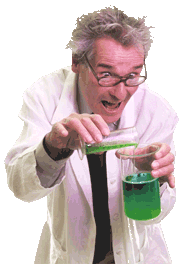At WiseGEEK, we're committed to delivering accurate, trustworthy information. Our expert-authored content is rigorously fact-checked and sourced from credible authorities. Discover how we uphold the highest standards in providing you with reliable knowledge.
What are the Properties of Gas?
A gas is one of the four states of matter and has properties that distinguish it from the other three states: solids, liquids and plasmas. No matter what molecules are present, the properties of gas, such as its ability to expand, will remain the same as long as the state is unchanged. Many molecules can exist in different states, and it is the properties of compression, resistance, and easily manipulated volume that define what it is.
One of the properties of gas is that it will always expand to fill whatever area it occupies. Regardless of how few or how many gas molecules and how big or small the space may be, a gas will always expand or condense until it is distributed throughout the container or space. This property gives gas another unique trait; as it can expand to the size of its container, the volume of a gas is equal to the volume of the container in which it is sealed. As the gas expands, the molecules can stick to any surface they touch, making them capable of expanding to the very edges of the container.

The ease of compression is another one of the distinctive properties of gas. Objects that move through gas act upon it, rather than the gas acting upon the object. This can be seen when an object such as a jet moves quickly through the gases of the atmosphere. When the jet reaches speeds that approach the speed of sound, this fast movement compresses the gas around it and creates waves. This transformation of the shape of a gas only occurs at incredibly high speeds, as another of the properties of gas is that it will generally offer little resistance to objects passing through it at a lower speed.
When a liquid or a solid is turned into a gas, there is a drastic change in the volume of the substance, and this demonstrates another one of the properties of gas. Hydrogen and oxygen combine to form water, which exists in three different states. When frozen, it is in the solid form of ice. Thawing ice and changing it into water does not result in a drastic change in the volume of the substance, but boiling water and changing it into a gas creates a much different scenario. The transformation between liquid and gas results in a change in the volume of the substance that can be up to 800 times greater than the original liquid or solid form.
AS FEATURED ON:
AS FEATURED ON:










Discuss this Article
Post your comments